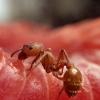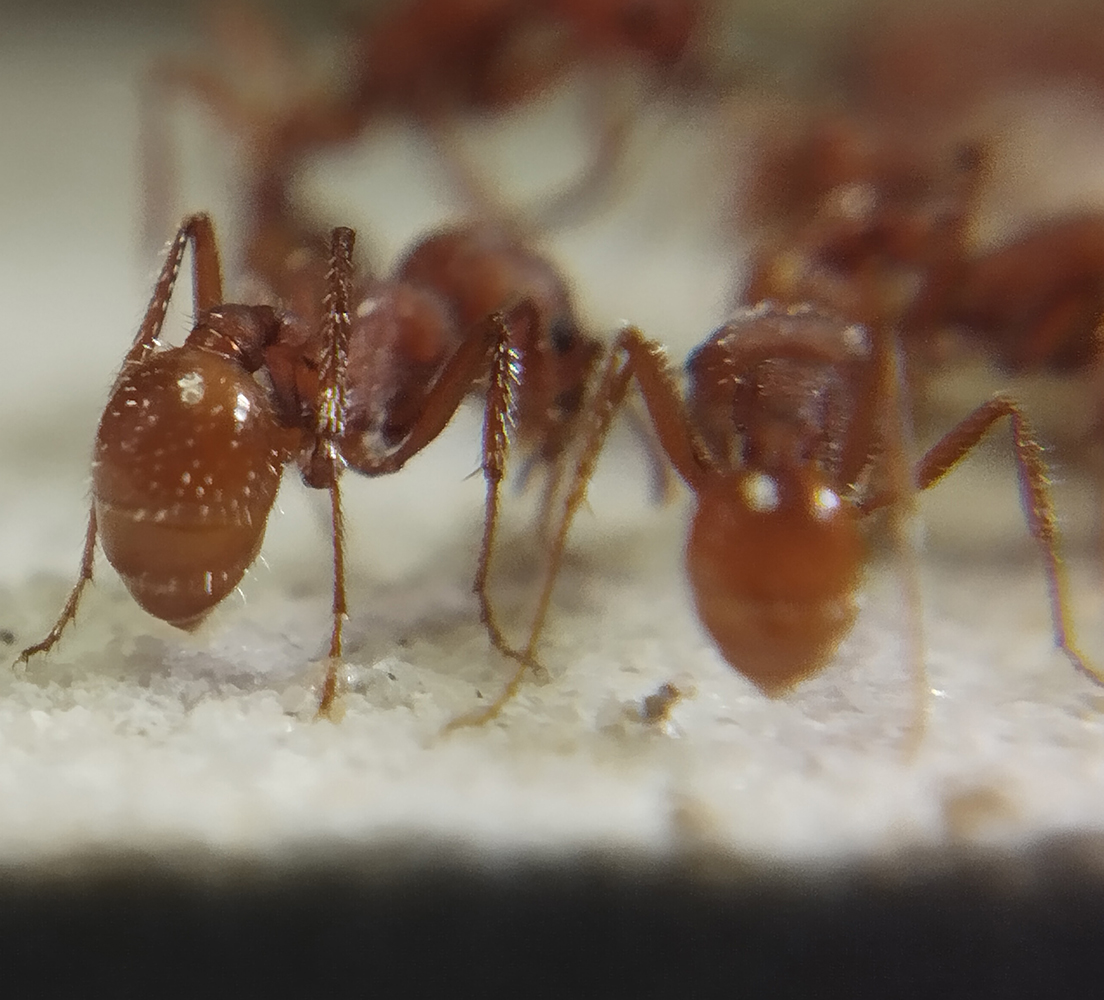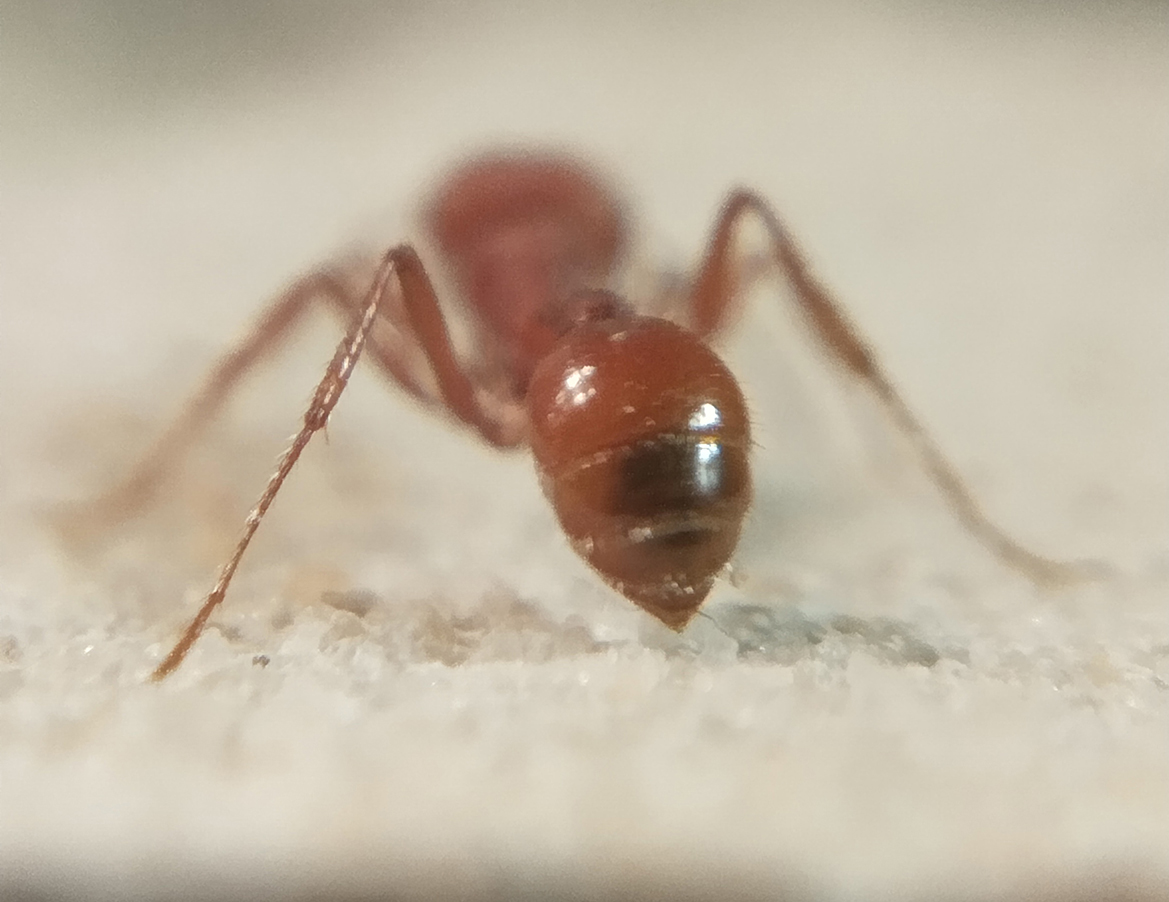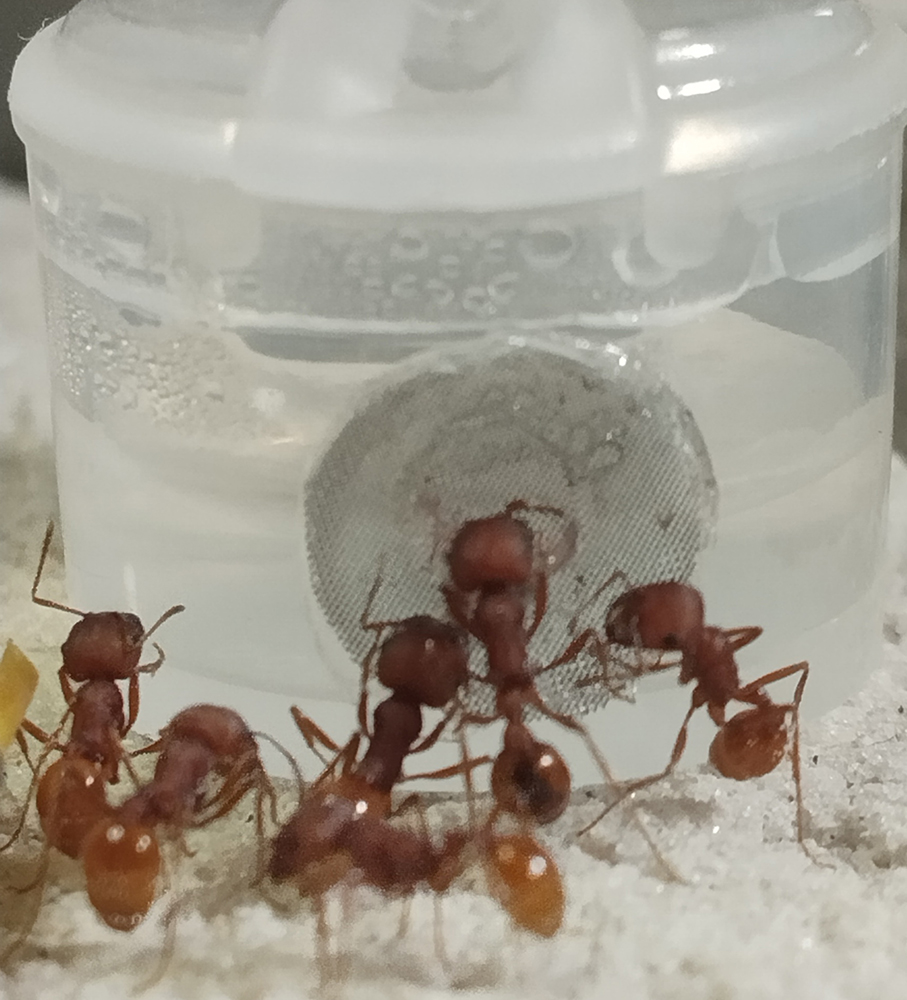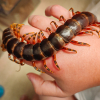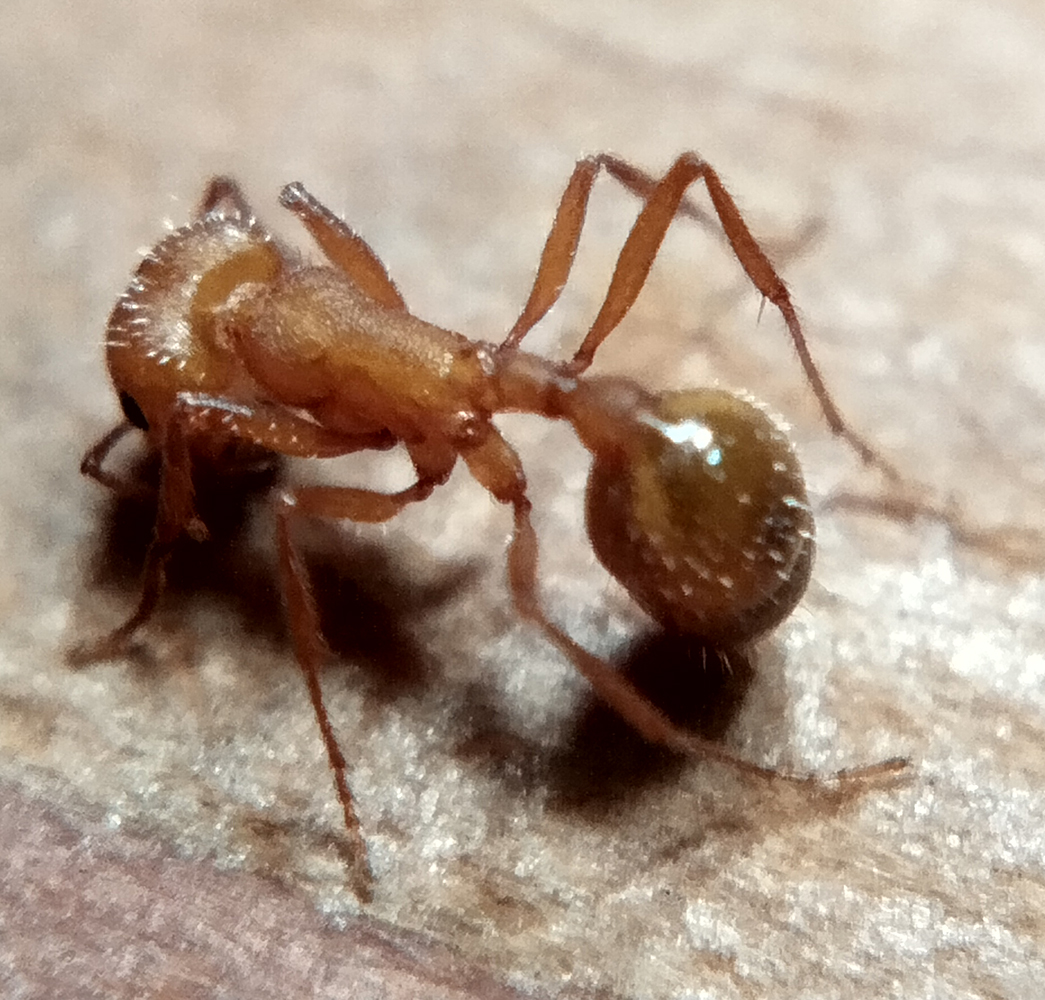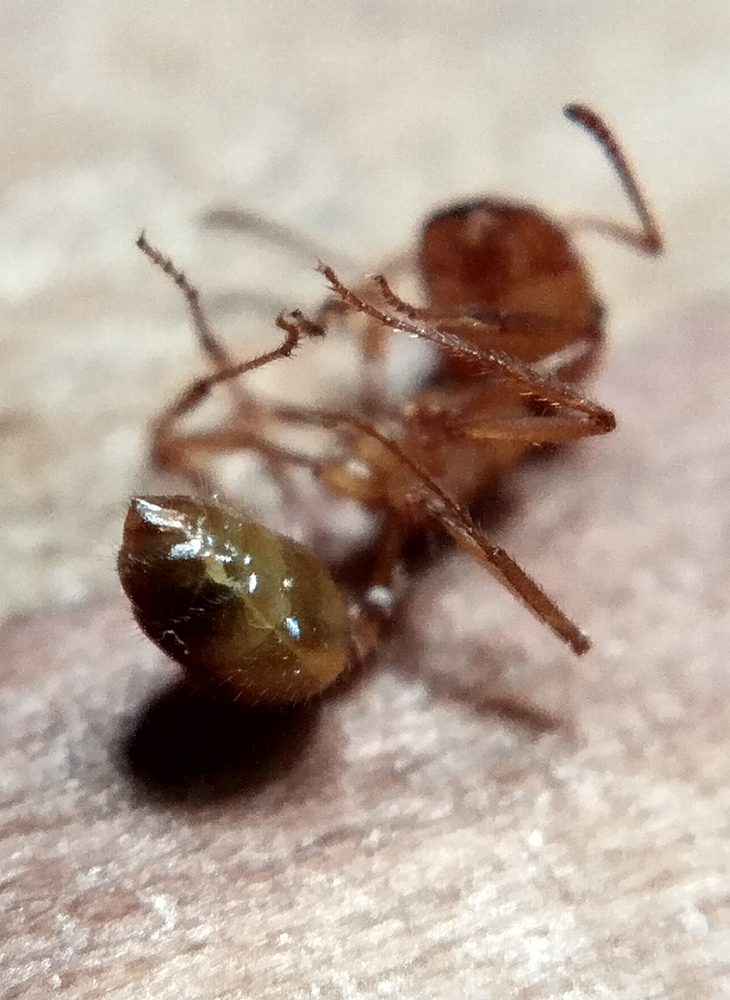I keep a colony of Pogonomyrmex Occidentalis. They change color a good deal over their life times, going form nearly white/golden yellowish at eclose to a deep dark red as late adults.
But some of them also devlope black internal coloring on their gastors. As if their guts become black and visible through them, though not all of them get this. What gives?
I fear something like parastic nematodes, though i have observed them like this from the begining(about 9 months ago). So i considered it something normal at first. But it is just such an oddity to me with no obvious patteren of what's happening. I want to know what's going on here.
Why this?
No black spot ant butts
Black spot ant butt
see the one in the group with it?
Is this normal, and what's causing it?
I can't say i've noticed any ominous patterens like black spot ants dying faster or anything like that. As far as i can notice who has it or not is arbitrary. But is something that devlopes over time, not something they are born showing.
Anyone got a clue what's gong on here?

